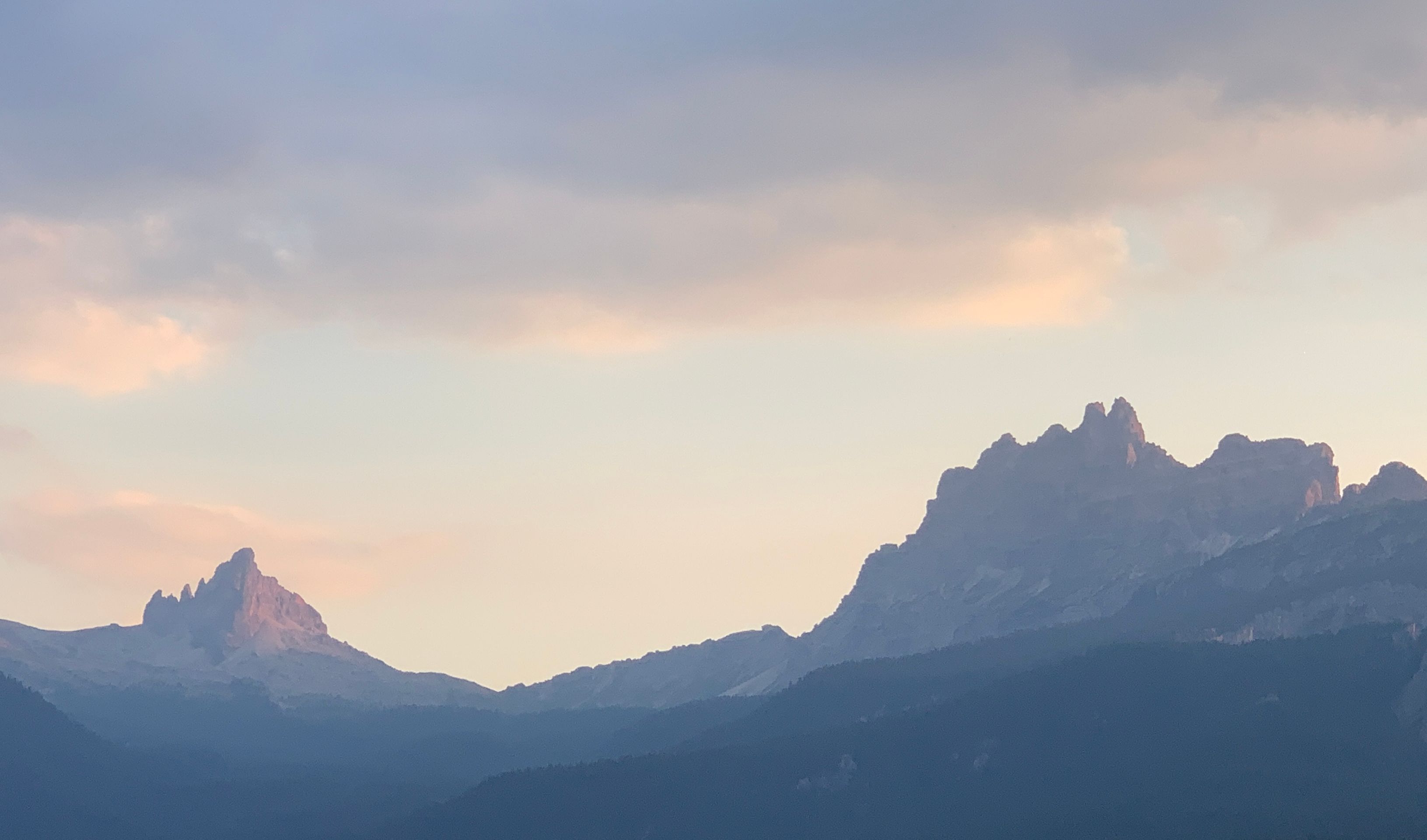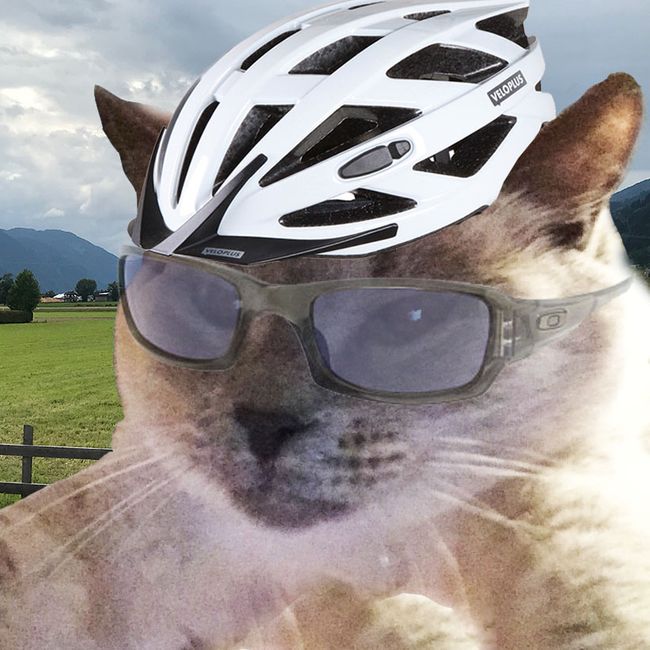Copacabana - The Serene
வெளியிடப்பட்டது: 17.10.2018
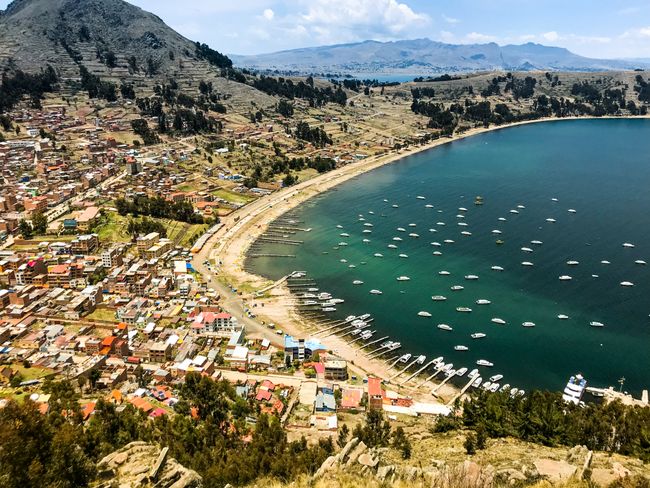
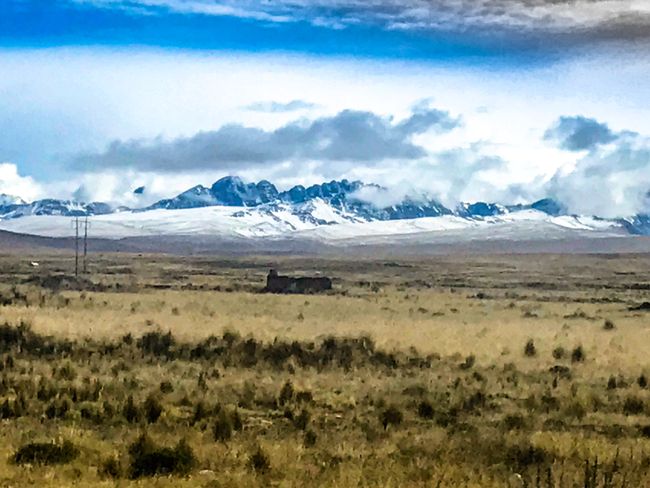
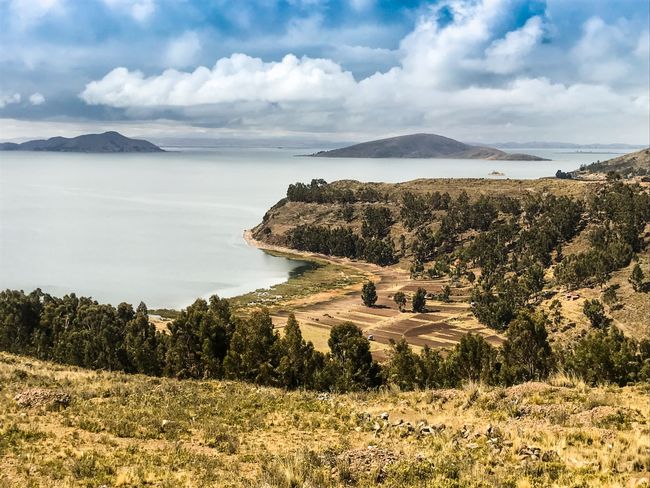
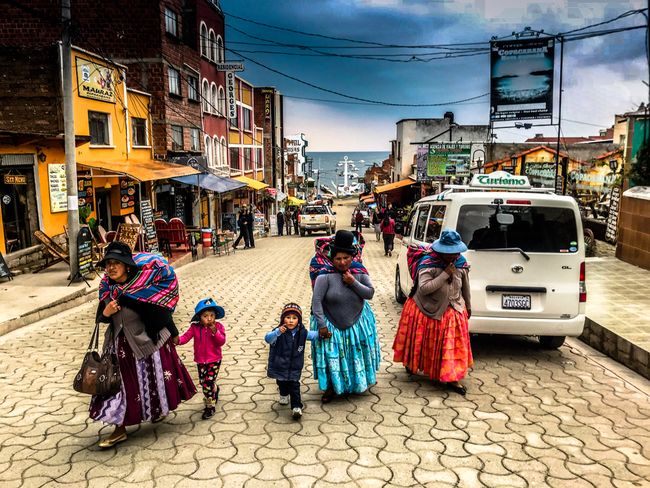
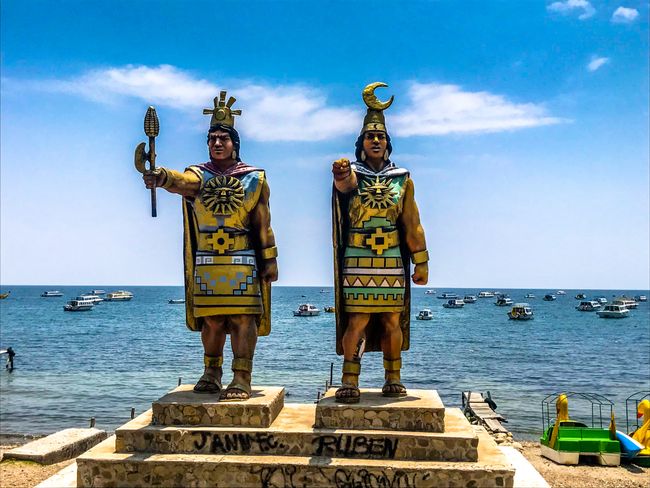
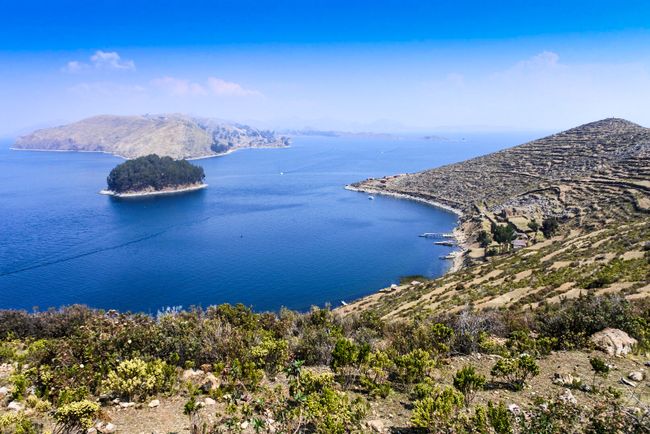
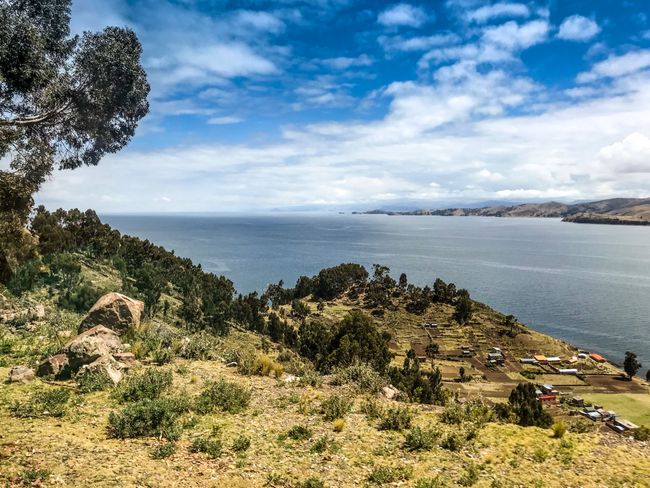
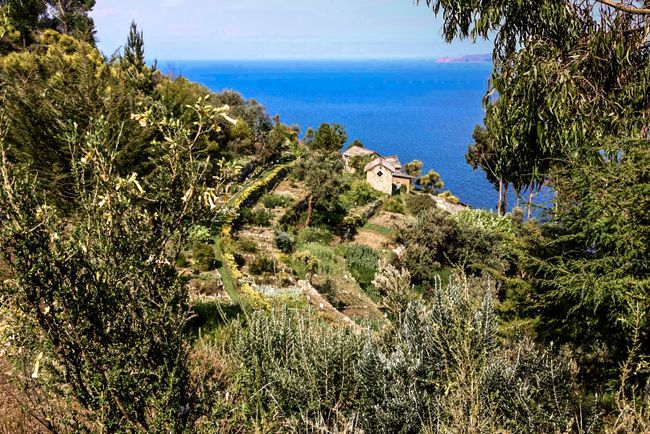
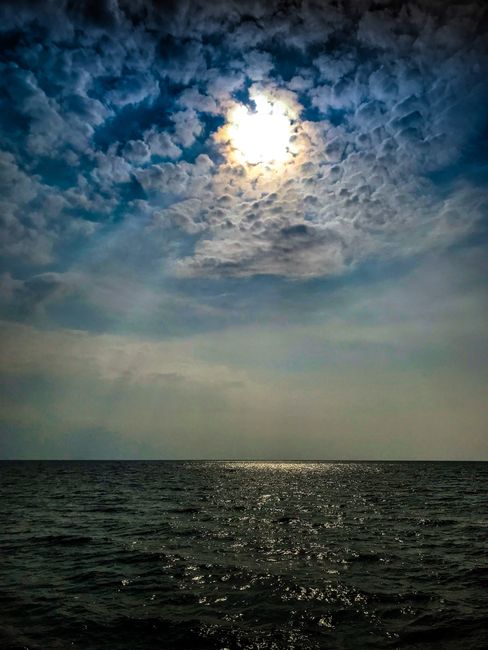
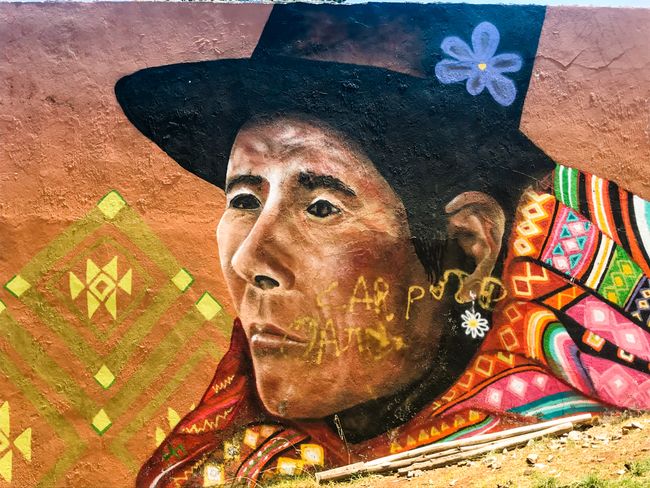
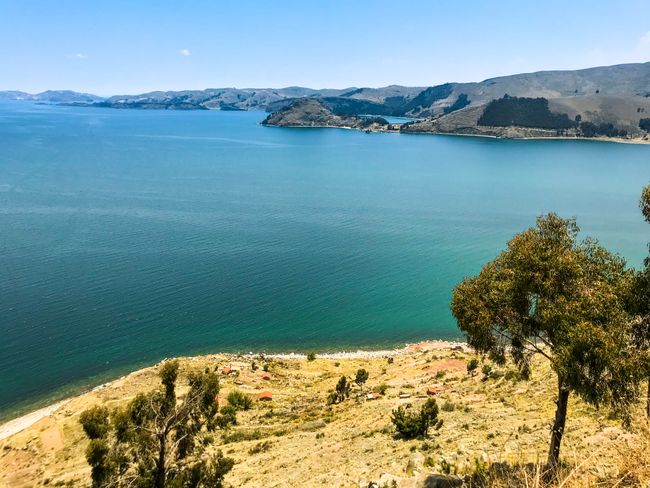
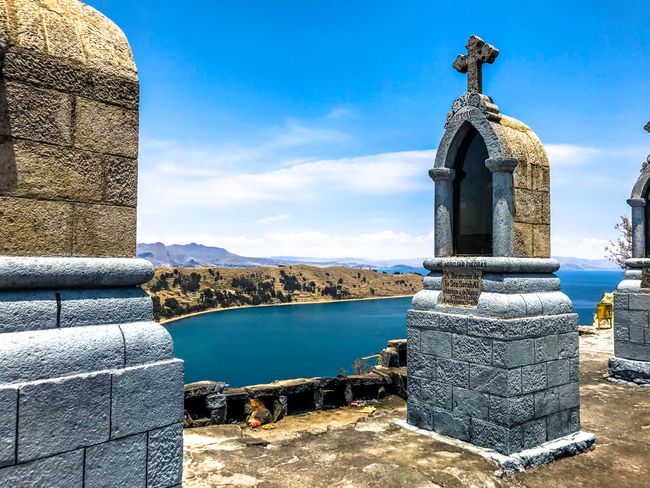
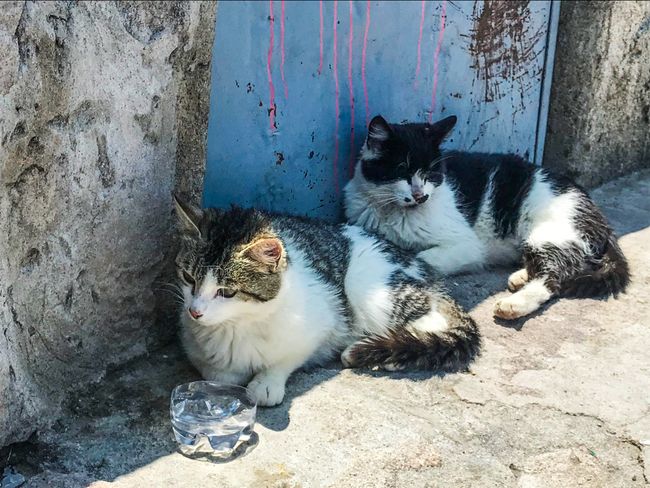
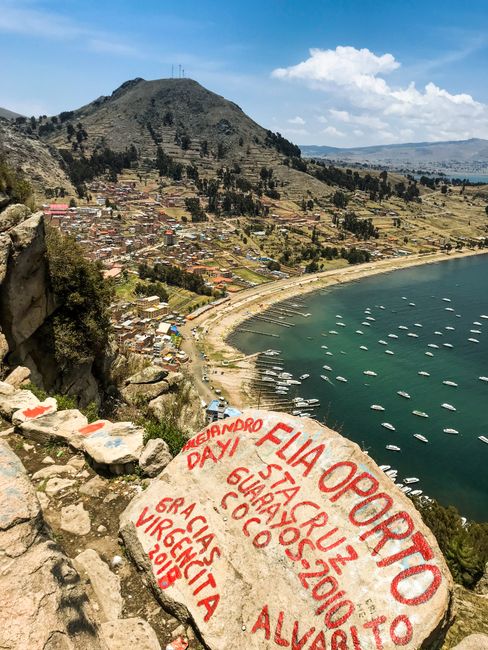
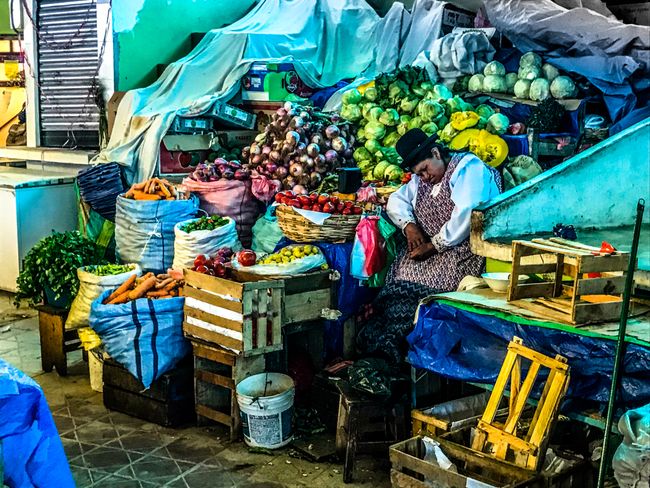
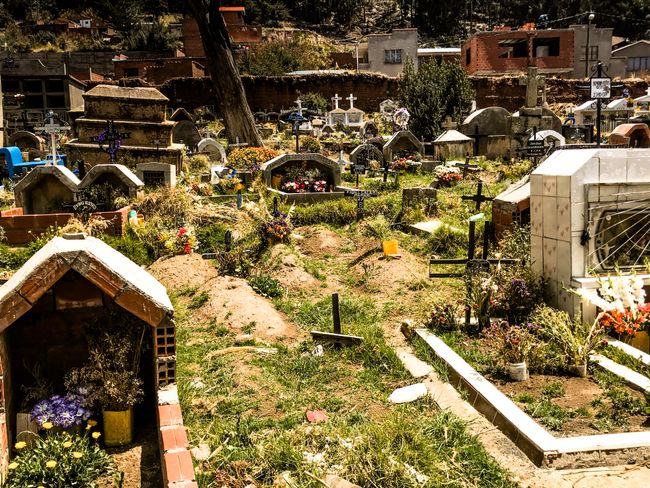
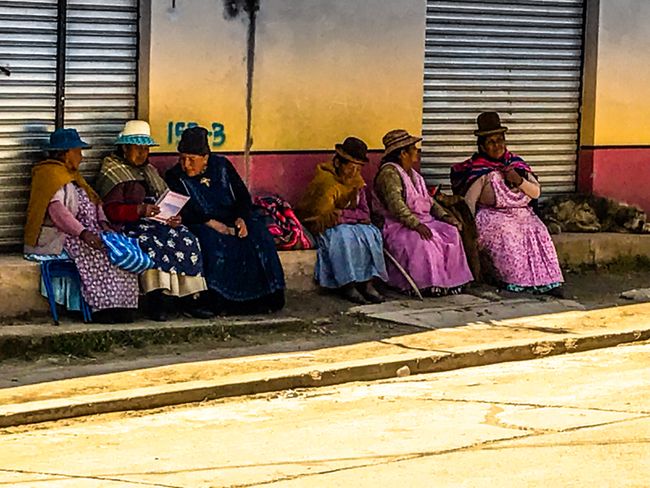
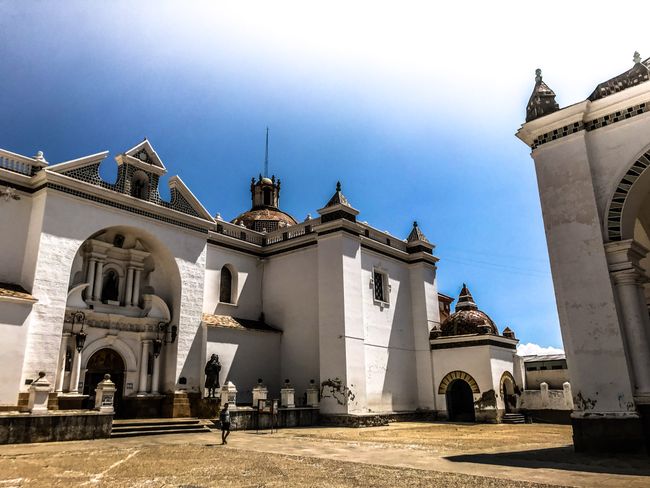
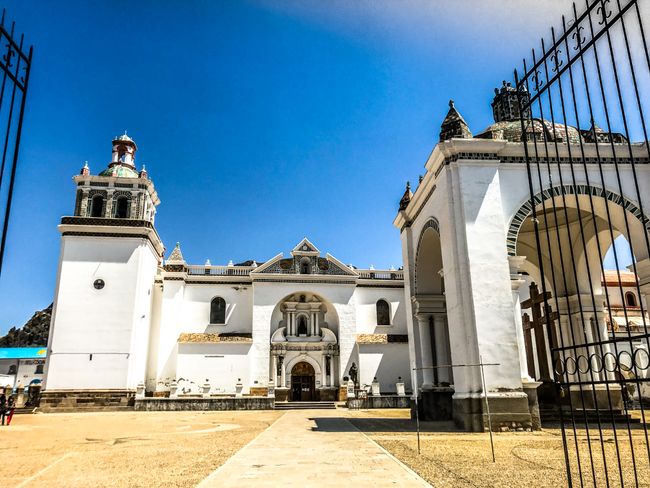
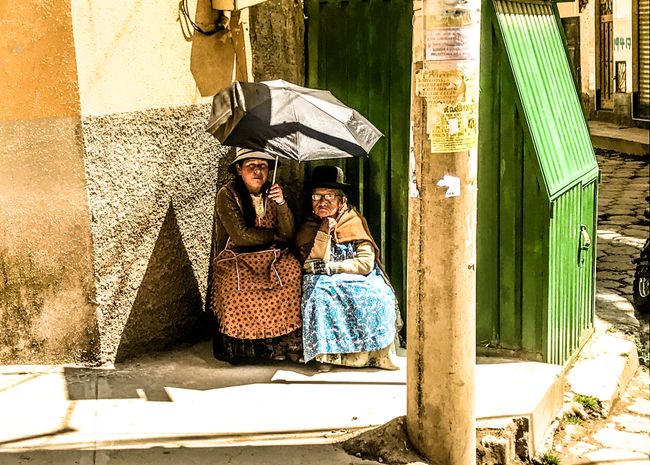
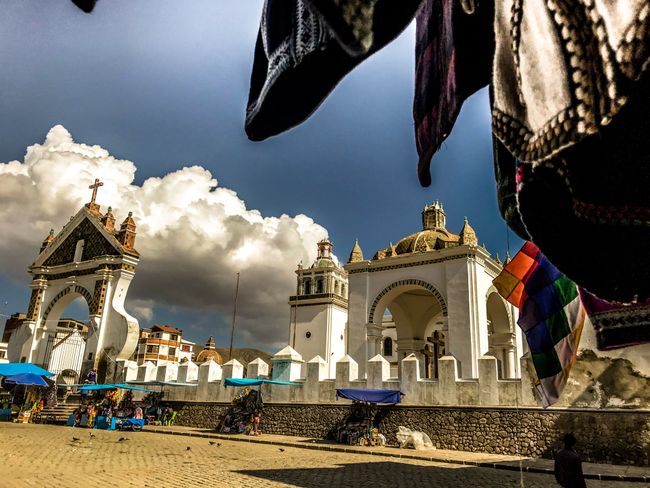
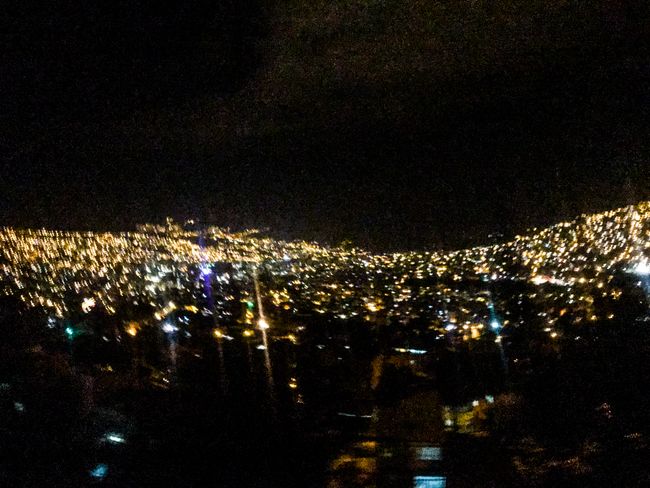
செய்திமடலுக்கு சந்தாதராகவும்
After the adrenaline rush on the Yungas Road, it was time for something more serene. The title may be a bit misleading, so we didn't let ourselves be tempted to take a detour to Rio, especially since their Copacabana is not really serene either. Copacabana in Bolivia is a small town on the southern shore of Lake Titicaca, located at an altitude of 3800m. It is also the starting point for the popular tourist islands Isla del Sol and Isla de la Luna (which, by the way, has nothing to do with our homonymous and well-groomed house cat).
For the trip, we followed the recommendation of many and went with the company "Bolivia Hop". They have developed a cross-border network with Peru that connects all the must-see destinations and coordinates the connections of different routes. It's more expensive than taking public buses but much more comfortable and, above all, safer. The route between La Paz and Copacabana has a bad reputation because it's common for tourists who traveled to La Paz with cheap and questionable companies to be robbed or even held captive for several days until the limits of their credit cards are exhausted at the ATMs. Not necessary.
Another huge advantage of Bolivia Hop is that they handle the hotel or hostel bookings for you. Our trip to Copacabana includes round-trip transportation and a boat tour to Isla del Sol and back. Everything is perfectly timed to seamlessly connect with the other connections. Since we stayed overnight in Copacabana, we had a buffer of 90 minutes before the boat trip, which gave us plenty of time to check into the hotel. Price: 30 US dollars per person for everything, so it's not expensive at all.
So after a four-hour drive through diverse landscapes, which reminded me partly of the Scottish Highlands (although I've never been there, but it looks something like that in pictures... ;-) we arrived in the charming Copacabana. We found a super cozy hotel with a lake view and very lovely Inca-style furnishings. At 1 p.m., we set off for the island tour. The crossing takes a full hour and you will be dropped off at the south end at the "Templo del Sol", from where you can hike along a high altitude trail to the port of the village of Yumani in about 45 minutes. From there, the boat takes you back to Copacabana. The scenery was magnificent and surprising, with terraced slopes that steeply descend to the lake and a rich vegetation. It reminded me of Liguria or the Cinque Terre (where I've been before and had a hard time finding a room...). Llamas, alpacas, and donkeys frolic on the terraces, and the scent of eucalyptus trees is wonderful. The village of Yumani on the hillside with its stone houses and the terraced "Inca garden" is a feast for the eyes. There are also very nice accommodations on the hillside with breathtaking views. If you're looking for peace and enjoy hiking, this is the place.
Unfortunately, the many tourists have a somewhat negative effect on the indigenous residents, especially the children. It's still okay to put up your llama and ask for money to take a photo. But when the brat says, "Give me 50 Bolivianos (7 CHF), I need new shoes," it's too much, especially since we have never experienced such behavior elsewhere in Bolivia.
The weather? As always, wonderful. But on the return trip, dark clouds gathered over the lake and we just made it back to the port in time before a massive thunderstorm broke out. We watched the spectacle from our hotel room, with the lake turning black and dozens of lightning bolts and strong winds. It lasted almost three hours.
On day two, it was sunny again. We used the day for a quite strenuous climb to Cerro Calvario, which offers a fantastic view of the city and Lake Titicaca. We also visited the famous Basilica of Copacabana, a run-down cemetery, and did some shopping (Bettina got completely hooked...).
At 6 o'clock in the evening, we hopped back on the Bolivia Hop bus and have already arrived back in La Paz, where we are preparing for our flight to Peru tomorrow.
செய்திமடலுக்கு சந்தாதராகவும்
பதில் (1)
Esther
Einmal mehr traumhafte Fotos! Da kann ich mit meinen Olma-Rennschweinchen einpacken ...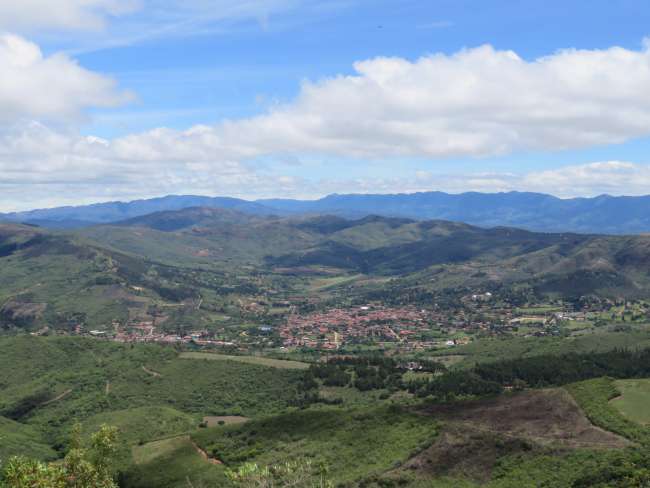
பயண அறிக்கைகள் பொலிவியா
